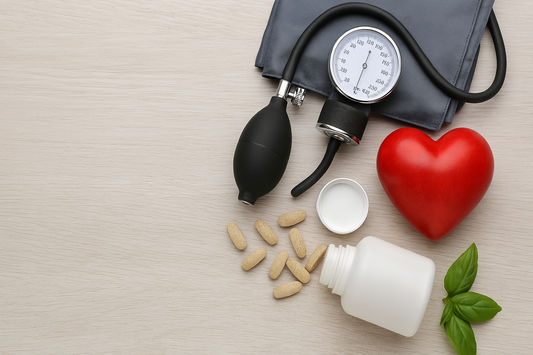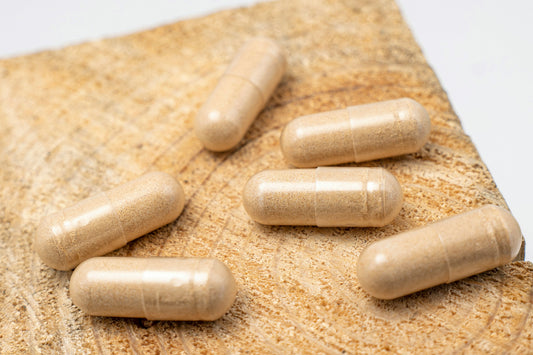How can I lower my BP in 5 minutes?
Looking for immediate ways to reduce your blood pressure? Discover effective techniques that can help lower your BP in just a few minutes.
- Taking deep breaths and lying down can temporarily lower blood pressure
- Lifestyle changes, such as losing weight and exercising regularly, are crucial for sustained blood pressure control
- Eating a healthy diet, reducing sodium intake, and limiting alcohol consumption are important for lowering blood pressure
- Quitting smoking, getting enough sleep, and managing stress can positively impact blood pressure levels
- Monitoring blood pressure at home and seeking support from family or support groups can help in maintaining optimal blood pressure levels
Taking Deep Breaths and Lying Down
One quick technique to lower your blood pressure in 5 minutes is to lie down and take slow, deep breaths. This simple method can help relax your body and mind, reducing stress and lowering your blood pressure temporarily. By lying down, you allow the blood to flow more easily through your body, relieving pressure on your blood vessels. Taking deep breaths can slow down your heart rate and activate the relaxation response, leading to a decrease in blood pressure.
To practice this technique, find a comfortable spot to lie down. Close your eyes and take a deep breath in through your nose, filling your lungs with air. Hold your breath for a few seconds, then slowly exhale through your mouth. Continue this deep breathing pattern for a few minutes, focusing on each breath as you inhale and exhale.
While lying down and taking deep breaths can provide immediate relief, it's important to note that this is not a long-term solution for managing blood pressure. It is a helpful technique to use in moments of high stress or temporary spikes in blood pressure. To maintain healthy blood pressure levels, it is essential to incorporate lifestyle changes into your routine.
| Techniques for Lowering Blood Pressure | Benefits |
|---|---|
| Lying down and taking deep breaths | Provides immediate relaxation, lowers blood pressure temporarily |
| Lifestyle changes (weight loss, exercise, healthy diet, reducing sodium intake, limiting alcohol consumption, quitting smoking, getting enough sleep, managing stress) | Results in long-term blood pressure control and reduced risk of heart disease |
Remember to consult with your healthcare provider before making any significant changes to your lifestyle or starting a new exercise program, especially if you have any underlying health conditions. Your doctor can provide personalized advice and guidance on managing your blood pressure.
Taking deep breaths and lying down can be a quick and effective technique to temporarily lower your blood pressure. Combined with lifestyle changes, such as maintaining a healthy weight, exercising regularly, and following a balanced diet, you can achieve long-term blood pressure control and improve your overall health. By incorporating these strategies into your daily routine, you can take proactive steps towards reducing your blood pressure and minimizing the risk of heart disease.
The Importance of Lifestyle Changes
While quick methods can help temporarily lower blood pressure, making long-term lifestyle changes is essential for maintaining healthy blood pressure levels. By adopting a healthier lifestyle, you can reduce your risk of developing high blood pressure and decrease your reliance on short-term solutions.
One of the most effective lifestyle changes for lowering blood pressure is losing weight. Carrying excess weight puts additional strain on your heart and blood vessels, leading to higher blood pressure. By shedding those extra pounds through a combination of regular exercise and a balanced diet, you can significantly lower your blood pressure levels.
| Lifestyle Change | Effectiveness | Implementation Tips |
|---|---|---|
| Regular Exercise | Highly effective | Choose activities you enjoy and gradually increase the intensity and duration. |
| Healthier Diet | Highly effective | Focus on consuming fruits, vegetables, whole grains, lean proteins, and low-fat dairy products. |
| Reducing Sodium Intake | Effective | Avoid processed and packaged foods, and opt for fresh ingredients when cooking. |
In addition to weight loss, incorporating regular physical activity into your routine is crucial. Exercise helps strengthen your heart and improves blood flow, leading to lower blood pressure levels. Aim for at least 150 minutes of moderate-intensity aerobic exercise per week, such as brisk walking or cycling.
Following a healthy diet, such as the DASH (Dietary Approaches to Stop Hypertension) or Mediterranean diet, can also have a significant impact on your blood pressure. These diets emphasize consuming plenty of fruits, vegetables, whole grains, lean proteins, and healthy fats while limiting processed foods, saturated fats, and added sugars.
By making these lifestyle changes, you can lower your blood pressure naturally and reduce the need for medication. Remember, consistency is key, and it's important to consult with your healthcare provider before making any significant changes to your diet or exercise routine.
Summary:
- Quick methods offer temporary blood pressure reduction, but long-term lifestyle changes are crucial.
- Losing weight through exercise and a healthy diet can significantly lower blood pressure levels.
- Regular physical activity strengthens the heart and improves blood flow.
- A healthy diet, like the DASH or Mediterranean diet, can have a positive impact on blood pressure.
- Consistency and consultation with a healthcare provider are essential for sustainable results.
Incorporating regular exercise and maintaining a healthy weight are effective ways to lower blood pressure and improve overall cardiovascular health. Engaging in physical activity helps strengthen your heart, improve blood circulation, and promote weight loss. Even moderate exercise, such as brisk walking or cycling, can have a positive impact on your blood pressure.
Aim to exercise for at least 30 minutes most days of the week. You can choose activities that you enjoy, such as swimming, dancing, or playing a sport, to make it more enjoyable and sustainable. Remember to start slowly and gradually increase the intensity and duration of your workouts as your fitness level improves.
In addition to exercise, maintaining a healthy weight is crucial in managing blood pressure. Excess weight puts extra strain on your heart and blood vessels, leading to an increase in blood pressure. By losing even a modest amount of weight, you can significantly reduce your blood pressure levels. To achieve weight loss, focus on consuming a well-balanced diet that is rich in fruits, vegetables, whole grains, lean proteins, and healthy fats.
| Physical Activities | Approximate Calories Burned (per hour) |
|---|---|
| Brisk Walking | 270-400 calories |
| Cycling | 400-600 calories |
| Swimming | 400-700 calories |
| Dancing | 300-500 calories |
"Regular exercise not only helps lower blood pressure, but it also has a positive impact on overall cardiovascular health. Aim for at least 30 minutes of moderate-intensity exercise most days of the week to keep your heart healthy." - Dr. Sarah Thompson, Cardiologist
Remember, it's important to consult with your healthcare provider before starting any new exercise program, especially if you have underlying health conditions. They can provide personalized guidance and recommendations based on your individual needs and medical history.
A nutritious diet, such as the DASH or Mediterranean diet, can be instrumental in lowering blood pressure and promoting heart health. These diets are rich in fruits, vegetables, whole grains, lean proteins, and healthy fats. They are also low in sodium, saturated fats, and processed foods, which are known to contribute to high blood pressure.
A key component of these diets is consuming plenty of fruits and vegetables, which are high in potassium and fiber. Potassium helps to regulate blood pressure by counteracting the effects of sodium in the body, while fiber helps to lower cholesterol levels and maintain a healthy weight.
Additionally, the DASH and Mediterranean diets encourage the consumption of lean proteins, such as fish, poultry, and legumes, which are low in saturated fats. These proteins provide essential nutrients without contributing to high cholesterol levels. Healthy fats, such as those found in olive oil, avocados, and nuts, are also emphasized in these diets. These fats can help to reduce inflammation and improve heart health.
| Food Group | Examples |
|---|---|
| Fruits | Apples, bananas, oranges, berries |
| Vegetables | Leafy greens, broccoli, carrots, tomatoes |
| Whole Grains | Brown rice, quinoa, whole wheat bread |
| Lean Proteins | Fish, chicken, turkey, lentils |
| Healthy Fats | Olive oil, avocados, nuts, seeds |
“A nutritious diet, such as the DASH or Mediterranean diet, can have a significant impact on lowering blood pressure and reducing the risk of heart disease.”
It's important to note that following a healthy diet is not only beneficial for lowering blood pressure, but also for overall heart health. These diets have been shown to reduce the risk of cardiovascular diseases, such as heart attacks and strokes. Adding regular physical activity and maintaining a healthy weight to a nutritious diet can further enhance the benefits.
By making simple changes to your eating habits and incorporating more fruits, vegetables, whole grains, lean proteins, and healthy fats into your diet, you can take an active role in managing and lowering your blood pressure.
Lowering sodium intake and limiting alcohol consumption can have a significant impact on blood pressure management. High sodium levels in the body can cause an increase in blood pressure, as it prompts the body to retain water, placing extra strain on the heart and blood vessels. Similarly, excessive alcohol consumption can raise blood pressure and contribute to the development of hypertension.
To lower your blood pressure, it's essential to reduce your sodium intake. This can be achieved by avoiding processed and packaged foods that are high in sodium, such as canned soups, deli meats, and fast food. Instead, opt for fresh, whole foods and flavor your meals with herbs and spices rather than salt. Additionally, reading food labels can help you make more informed choices about sodium content.
Furthermore, being mindful of alcohol consumption is crucial for effective blood pressure management. While moderate alcohol intake may have some health benefits, excessive drinking can raise your blood pressure. It's recommended to limit alcohol consumption to one drink per day for women and two drinks per day for men. Cutting back on alcohol can not only help lower your blood pressure but also improve your overall health and well-being.
| Food Items High in Sodium | Sodium Content (per serving) |
|---|---|
| Canned Soup | 800-1,200 mg |
| Deli Meats | 400-800 mg |
| Packaged Snacks | 200-600 mg |
| Frozen Dinners | 500-1,500 mg |
By making conscious choices to reduce sodium intake and limit alcohol consumption, you can take important steps towards managing your blood pressure. Remember, these lifestyle changes should be part of a comprehensive approach to maintain a healthy blood pressure level. Incorporating regular exercise, following a balanced diet, and seeking support from healthcare professionals or support groups can further enhance your efforts in achieving optimal blood pressure control.
"Lowering sodium intake and moderating alcohol consumption are simple yet powerful strategies to keep your blood pressure in check."
Quitting Smoking and Getting Enough Sleep
Quitting smoking and prioritizing sufficient sleep can contribute to maintaining healthy blood pressure levels. Smoking is known to raise blood pressure and increase the risk of heart disease. By quitting smoking, you not only protect your cardiovascular health but also take a significant step towards lowering your blood pressure. It may not be easy, but with the right support and determination, you can overcome this harmful habit and improve your overall well-being.
Sleep plays a crucial role in maintaining optimal blood pressure. Lack of sleep or poor quality sleep has been linked to elevated blood pressure levels. By ensuring you get enough sleep, preferably 7-9 hours each night, you are giving your body the chance to regulate and balance your blood pressure. Implementing good sleep hygiene practices, such as creating a relaxing bedtime routine and creating a comfortable sleep environment, can greatly enhance the quality and duration of your sleep, leading to better blood pressure control.
"Quitting smoking is the best thing you can do for your health." - Anonymous
Remember that every step you take towards a healthier lifestyle can have a positive impact on your blood pressure. By quitting smoking and making sleep a priority, you are taking important measures to ensure your blood pressure stays within a healthy range. Alongside other lifestyle changes, such as regular exercise and a balanced diet, you can significantly reduce the risk of developing high blood pressure and its associated complications.
| Healthy Habits to Lower Blood Pressure |
|---|
| Quit smoking |
| Get 7-9 hours of sleep each night |
| Exercise regularly |
| Follow a balanced diet |
| Reduce sodium intake |
| Limit alcohol consumption |
Effectively managing stress and regularly monitoring blood pressure at home are vital for controlling blood pressure. High levels of stress can lead to an increase in blood pressure, so finding ways to relax and unwind is crucial. Engaging in activities such as meditation, deep breathing exercises, or practicing mindfulness can help reduce stress and promote a sense of calm.
Additionally, monitoring your blood pressure at home allows you to stay informed about your numbers and track any changes over time. This can be done using a home blood pressure monitor, which is easy to use and provides accurate readings. By regularly checking your blood pressure, you can identify any fluctuations and take necessary steps to maintain healthy levels.
Creating a routine to monitor your blood pressure can be beneficial. Set a specific time of day to take your readings and record the results in a journal or an app designed for tracking blood pressure. This helps you keep a record of your measurements and provides valuable information for your healthcare provider during check-ups.
Remember, managing stress and monitoring your blood pressure at home are essential aspects of maintaining a healthy blood pressure level. By incorporating these practices into your daily routine, you can significantly improve your overall well-being and reduce the risk of complications related to high blood pressure.
Seeking Support and Conclusion
Seeking support from loved ones or support groups can provide the necessary encouragement and guidance for maintaining healthy blood pressure levels. Having a strong support system can help you stay motivated and accountable on your journey to lower blood pressure. Whether it's sharing healthy recipes, going for walks together, or simply lending an empathetic ear, the support of others can make a significant difference.
In conclusion, while quick methods like lying down and taking deep breaths may provide temporary relief, it's important to recognize that long-term lifestyle changes are crucial for lowering blood pressure and reducing the risk of heart disease effectively. By implementing these changes, such as losing weight, exercising regularly, following a healthy diet, reducing sodium intake, limiting alcohol consumption, quitting smoking, getting enough sleep, managing stress, and monitoring your blood pressure at home, you can take control of your blood pressure and improve your overall cardiovascular health.
Remember, it's always advisable to consult with your healthcare provider before making any significant changes to your lifestyle or starting a new exercise regimen. They can provide personalized guidance and ensure that you are on the right track towards achieving and maintaining healthy blood pressure levels. With determination, support, and a commitment to long-lasting change, you can lower your blood pressure and enjoy a healthier, happier life.
FAQ
How can I lower my blood pressure in 5 minutes?
To lower your blood pressure in 5 minutes, you can try lying down and taking deep breaths. This helps slow your heart rate and decrease your blood pressure. However, it's important to note that this is only a temporary solution and won't have long-lasting effects.
What lifestyle changes are necessary for sustained blood pressure control?
To sustain blood pressure control, lifestyle changes are necessary. These include losing weight, exercising regularly, eating a healthy diet (such as the DASH or Mediterranean diet), reducing sodium intake, limiting alcohol consumption, quitting smoking, getting enough sleep, managing stress, monitoring your blood pressure at home, and seeking support from family or support groups.
Can losing weight and exercising regularly help lower blood pressure?
Absolutely! Losing weight and exercising regularly are important steps in lowering blood pressure. They contribute to overall cardiovascular health and can have a significant impact on reducing blood pressure levels.
How does reducing sodium intake and limiting alcohol consumption affect blood pressure?
Reducing sodium intake and limiting alcohol consumption are important for blood pressure control. Excessive sodium can contribute to fluid retention and increased blood pressure, while excessive alcohol consumption can raise blood pressure and damage the heart.
What role does stress management play in lowering blood pressure?
Stress management is crucial for maintaining healthy blood pressure levels. Chronic stress can lead to increased blood pressure, so finding effective stress management techniques, such as exercise, meditation, or therapy, can help reduce blood pressure.
Why is monitoring blood pressure at home important?
Monitoring blood pressure at home allows you to keep track of your readings and provides valuable information for your healthcare provider. It helps you identify any changes in blood pressure and can guide treatment decisions.
Is seeking support from family or support groups beneficial for blood pressure control?
Absolutely! Having a strong support system can provide emotional support and motivation for making and sustaining lifestyle changes. Family and support groups can also provide helpful tips and resources for managing blood pressure.
Source Links
- https://www.mayoclinic.org/diseases-conditions/high-blood-pressure/in-depth/high-blood-pressure/art-20046974
- https://www.medicinenet.com/how_can_i_lower_my_blood_pressure_in_minutes/article.htm
- https://www.mdlinx.com/article/doing-this-for-5-minutes-could-lower-your-blood-pressure/37ulODwBkSYYwmFbgD3E0P





